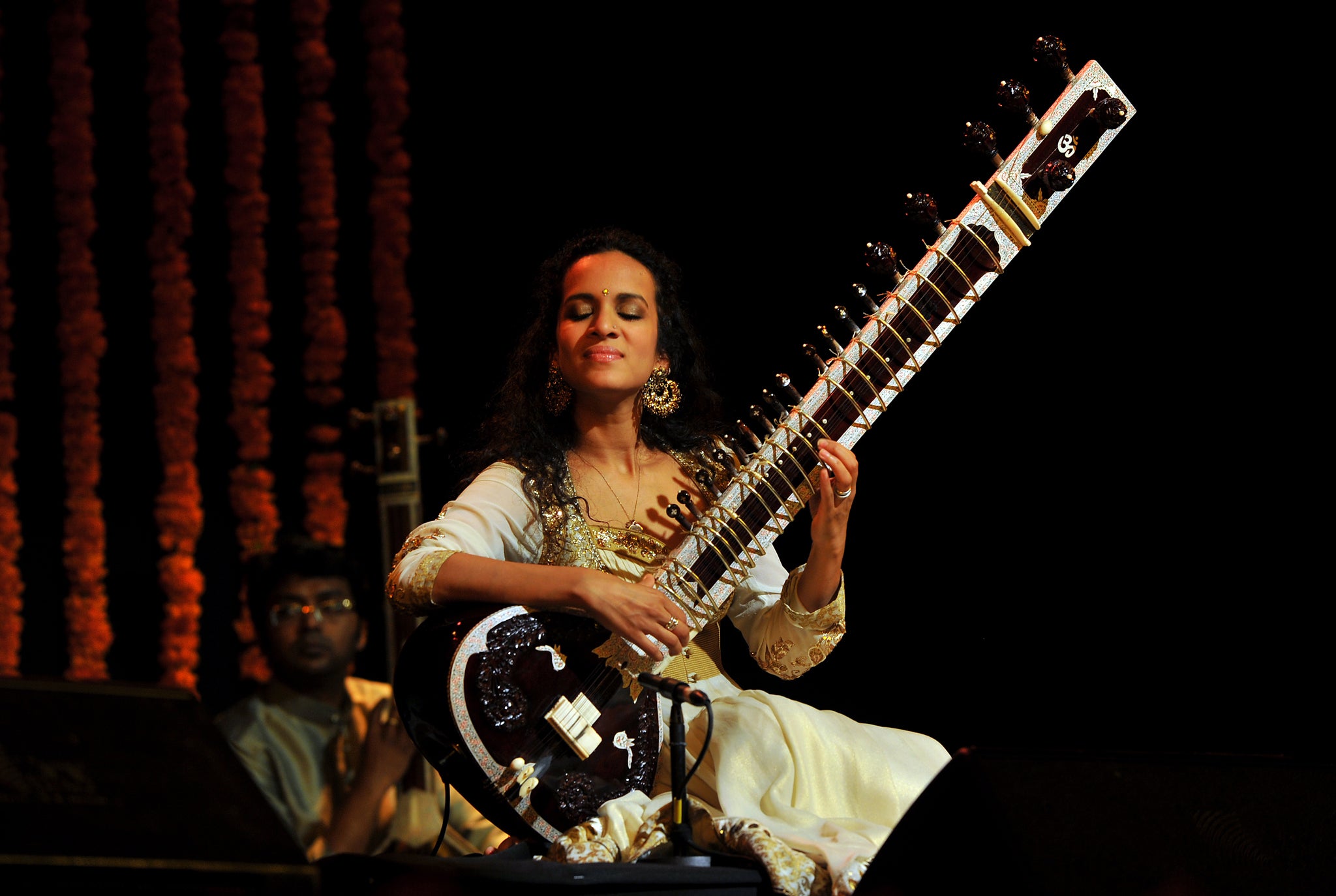Music review: Anoushka Shankar, Queen Elizabeth Hall, London

Fusion is a naff word these days, fit only for restaurants waiting quiveringly to be sneered at by Gordon Ramsay. If you wish to collide two unlikely cultural elements to form curiously flavoured new compounds, the desired term is that you’re setting up a “conversation”.
The particular chat that sitarist Anoushka Shankar is starting off here tonight, though - between the gypsy music of Rajasthan and its far-flung offspring, the flamenco music of Spain - is more a long-overdue talk between old friends. Traveller, Shankar’s latest album, is even wilder live. The tone is set by the opening act, a band of Rajasthani musicians who set up fierce, flamboyant rhythms, to which ornately beaded, many-coloured dancers whirl and spin, bending backwards to pick up four gold rings off the floor with their eyelids.
“I can’t believe I have to follow that,” smiles Shankar as she takes the stage, but follow it she does, and how. It’s a performance all about conversation; a wailing shenhai calls plaintively to her flashing sitar through an ambling, liquid rhythm. Then, as a flamenco guitarist and singer join the musicians already onstage, a playful duel begins between guitar and sitar, flurries of notes finding a common language and taking it for a giddy whirl.
Shankar remains the still centre of all, and the emotional focus is given over mainly to the transfixing, cataclysmic sorrows described by the shrill wails of Sandra Carrasco, around which hot-blooded rhythms build and lull, each instrument taking its turn in the foreground and call-and-responding to another.
"Dancing In Madness" has a dark groove, with percussionists trading scat-style syllables back and forth, Indish? Spandian? Something like that. “I think I was in a bad mood when I wrote that one,” laughs Shankar, before introducing a happier love theme in the form of "Si No Puedo Verla", which translates the yearning Farsi couplets of 13th-century Indian poet Amir Khusrau into Spanish.
Shankar closes things with a piece of her father Ravi’s called "Folk", which the musicians have practiced for the first time that day. The Rajasthani musicians and dancers take the stage once more, and everyone takes a laughing, stomping turn in the spotlight, drums Spanish and Indian trading repartee of rhythm until we’re all breathless. As Shankar and her merry band take their well-earned bows, though, you’re left wishing we could talk like this more often.
Subscribe to Independent Premium to bookmark this article
Want to bookmark your favourite articles and stories to read or reference later? Start your Independent Premium subscription today.

Join our commenting forum
Join thought-provoking conversations, follow other Independent readers and see their replies